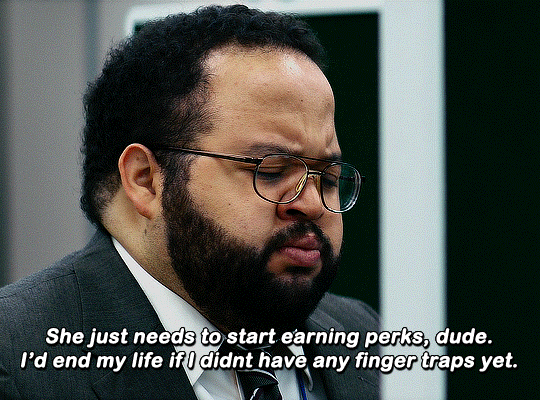#commodity fetishism
Explore tagged Tumblr posts
Text

his bag is unzipped and his luggage is louis vuitton
sent to me by: @cuthechicane


69 notes
·
View notes
Text
For Marx the self under capitalism ceases to have an ontological reality of its own, instead it substitutes within itself a series of object-attachments which replace any real (or otherwise economically non-motivated) sense of autonomy.
—Dickens' Ghosts

#andrew smith#karl marx#marxism#capitalism#object attachment#commodity fetishism#perks#dylan george#gothic#severance
10 notes
·
View notes
Text

Eat Shit Die
#eat#shit#die#bill clinton#coca cola#macdonalds#fanta#sugar#salt#fat#consumerism#commodity#commodity fetishism#spectacle#marx#debord#jean baudrillard
2 notes
·
View notes
Text

“Distraction”, July 2024.
#artists on tumblr#collage#retro#vintage#film photography#original art#1940s#1940s vintage#1940s women#photography#digital art#digital aritst#pollution#glitch#phone addiction#escapism#zero waste#commodity fetishism#historical materialism#retrowave#fast fashion#late stage capitalism#anti capitalism#capitalist dystopia#digital arwork#my art#retro aesthetic#retrofuture
5 notes
·
View notes
Text
youtube
#consumerism#commodities#commodity fetishism#Michelle Choi#Alice Cappelle#video essay#temu#online shopping#i have no idea why i still had this post in my drafts
1 note
·
View note
Text
How Cars (2006) Explains the Collapse of American Society
youtube
1 note
·
View note
Text

379 days until submission
9am-5pm Karl Marx
5pm-12am Carl Barks

no changes to report some 300 years onwards
0 notes
Text
In Marx’s account of commodity fetishism in Capital (1867), objects become ‘alive’ with the labour which produced them, whilst individuals become increasingly objectified through labour.
—Dickens’ Ghosts

Art by @sketchupnfries 🖤
4 notes
·
View notes
Note
You're probably right on the Wallace Shawn thing but it's provocative...... it gets the people going
it gets the people going on the wrong foot. i'm sure this sounds a bit too over the top, but i've been expressing my frustration with the '2 steps sideways 1 step back' approach to socialism for a long time. people defend oversimplified memes on these grounds too, as if somehow we're weaponizing unarticulated and easy-to-dismiss crudifications of positions as a means of bringing people on board, but in the best case scenario we're expecting everyone to unlearn these things and become incredibly frustrated in the process. this was definitely my experience with trying to navigate these things about a decade ago.
personally i am in favor of saying what we mean and being creative in our approach to these things so that we can get our points across without distorting them. in this particular case, there's nothing in the piece more provocative than the mention of a nude woman posing for a photographer. it's politically null otherwise. what else am i supposed to get out of it? i need to carefully train my brain to see commodity flows everywhere? am i supposed to be a day trader or a communist? should i buy fair trade coffee or just sit here content knowing that we're one big, beautiful global network of Humanity while continuing on exactly as before? there's nothing there to tell me why that stuff really matters other than that it's written in a way which makes me feel like i've learned something amazingly deep without having to understand anything at all.
#no offense to the piece or shawn or any of that tbf#it's well written and all that#but to see it dragged out as a commodity fetishism explainer as if it's Doing Theory is a mistake imo
18 notes
·
View notes
Text
Explaining Marx’s Theory of Value as you change my diapie 🤭🤭
#literally doing commodity fetishism#commodity fetishism but epic#just thinking about it#ap’s babblings#ab/dl#cg/l
15 notes
·
View notes
Text
i need to see the ocd post every day actually. i asked my mom to get chocolate chips for making pancakes and i felt/feel so guilty bc i actually instated a Rule a while back that i can't ask for chocolate or buy chocolate due to the industry around it being supremely unethical. (and also forgot, apparently, when i got chocolate ice cream on my birthday, but maybe bc it wasnt just straight up chocolate i wasnt thinking.) and i think this is the ocd talking to me
#i also get really upset about drinking coffee sometimes for similar reasons#but if i try to calm down about it then i feel like im doing commodity fetishism and abdicating responsibility for my actions etc#it applies to a lot of things honestly#so i feel morally obligated to feel miserable about having buying or eating stuff#especially if it isnt like a survival essential. like anything thats nice or treat im like.#i need to do penance for living in the imperial core#but then sometimes i think maybe this is reasonable and i DO have the obligation so its NOT ocd. or its good to have OCD. i dont know.
4 notes
·
View notes
Text

Okay I'm joining the war on communism against communism because wtf is this!!!!!!!!!!!!!
#“if you really think about it the desire to have a stable living situation is commodity fetishism.” do you have a brain you use#if you're going to crit something at least choose the inherent limits of the film's christianity based ethics aaaaaaaa
16 notes
·
View notes
Text
fr tho. where are all these people posting about how much they loooove destroying hospital infrastructure. where are all these devious internet armchair commies posting about how much they love personally going into the nicu and smashing medicine and flipping circuit breakers. What are all of you talking about???
as someone with a disability whose daily life relies on continued uninterrupted access to a medicine which is extremely prone to shortages: I Get It. It’s scary to imagine a situation where you don’t have access to the thing that you need to live. Like many others, I’ve been in that situation before. It’s scary. Scarcity is a terrible thing, and it will absolutely kill and maim when given half a chance.
But come on. Extend that feeling beyond Our National Borders for like- one fucking minute. People trying to live in Inconvenient Ways in Inconvenient Places don’t have enough food. or clean water.
Frankly, and I know this isn’t my decision to make for everyone, but if people have to be disappeared by right-wing death squads or exposed to white phosphorous for me to get my medicine?? I don’t fucking want it.
And that’s medicine I need to live. I also need lithium and cobalt to fuel the reusable battery I use to call my pharmacy. Some people die so that i can save $0.20/gallon at the gas station. Some people died so that Communist Ideals can’t enter the same hemisphere as Washington D.C. People died for chocolate bars. People were killed for Coca Cola.
Can we have serious discussions about how our infrastructure functions now with all its potential failures and necessary costs? Instead of preemptively fighting an imagined unspecified Violent Revolution? Can we talk about how the unsubstantiated threat of Violent (communist) Revolution motivates substantiated violence? How the rhetoric of Violent Revolution has been used to motivate, financially support, and actualize real human deaths? Please? Anyone??
No? Not allowed? Oh okay, sorry. And just to clarify- I’m the one advocating for violence??
#massacre a courtyard’s worth of striking workers over bananas? doesn’t matter#point out that the UFC still operates under the license Chiquita in the produce aisle at the grocer’s???#now i’m the one being weird#call it commodity fetishism but idk i think it’s weird#anyways#i don’t really like to buy bananas#it’s not a moral issue i just feel dirty at the checkout#when my mom buys them i’ll still eat ‘em#but im not gonna go online and do the work of conservative pundits
4 notes
·
View notes
Text
lol. the AI coke ad.
lol. the corporations investing billions of dollars into gen AI.
lol. the people still burying their heads in the sand about generative AI being an ethics problem that is being heightened by capitalism.
#ramblings#vent#the lack of ethics IS part of the product.#it's embarrassing seeing a niche group of ML's defending gen AI too. it's just a form of commodity fetishism besties 😔#we were warned about the social alienation of capitalism!#and now you're literally overlooking your transfem artist pals who are in poverty n calling them reactionaries for being upset#all so you can make yourself feel better about prompting a program to make images of catgirls kissing using stolen work?#lol. get tae fuck.
2 notes
·
View notes
Text
guy who hears universities are all marxist and postmodern so he gets in depth knowledge of marxism so he will do well in college
46 notes
·
View notes
Text
Crunchyroll released three episodes of A Sign of Affection on YouTube, an anime about a deaf girl, without any closed captioning.
Ironic.
Hearing people love our visibility, but they don't accommodate.
#A Sign of Affection#Crunchyroll#CR#accessibility#hypervisibility#deaf exclusion#sign language as a commodity#deaf representation#Nothing About Us Without Us#deaf fetishization#disability fetishization#sign language commodification
7 notes
·
View notes